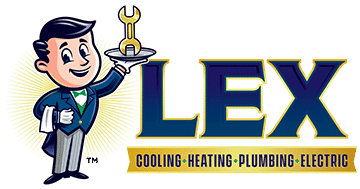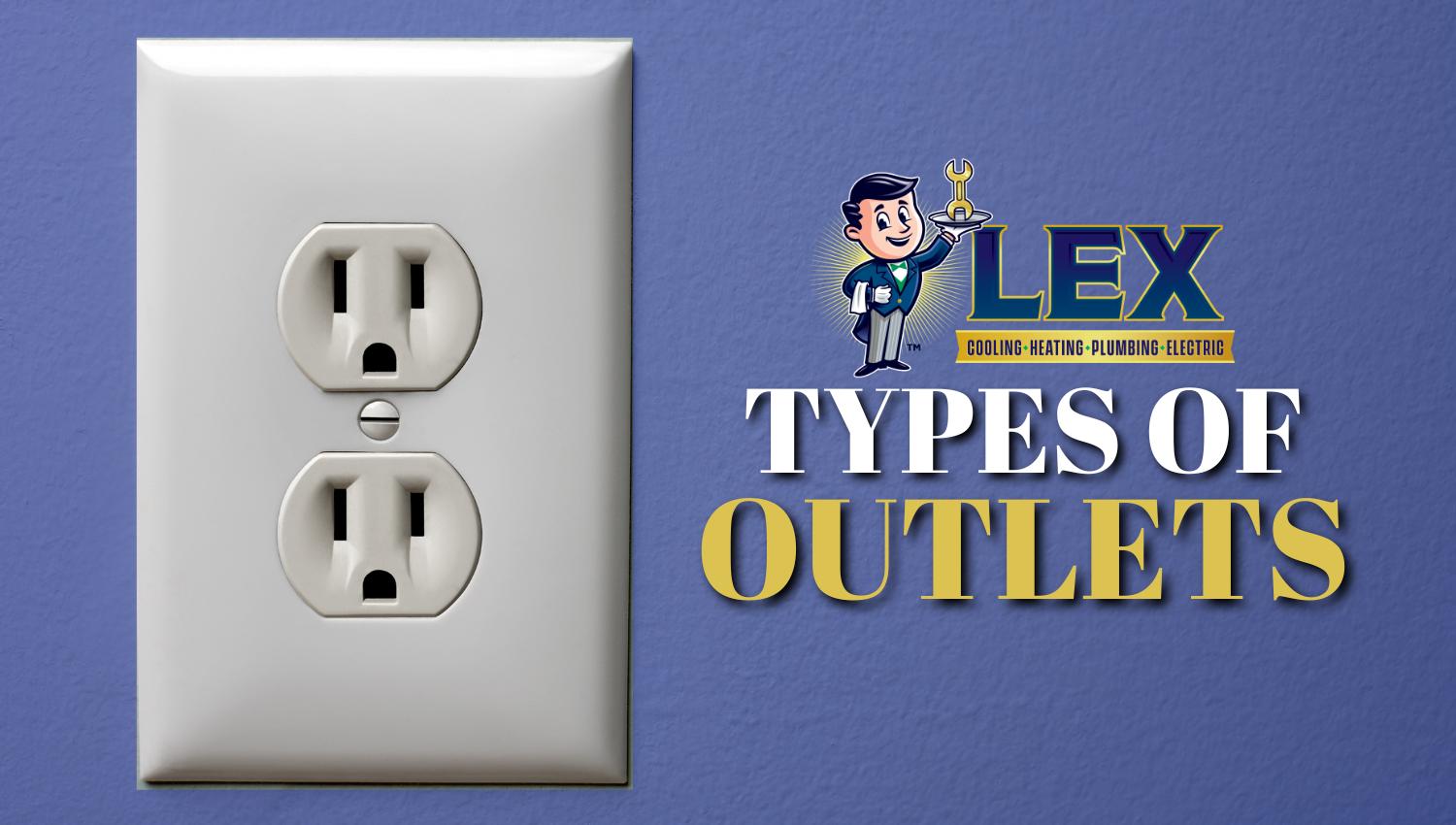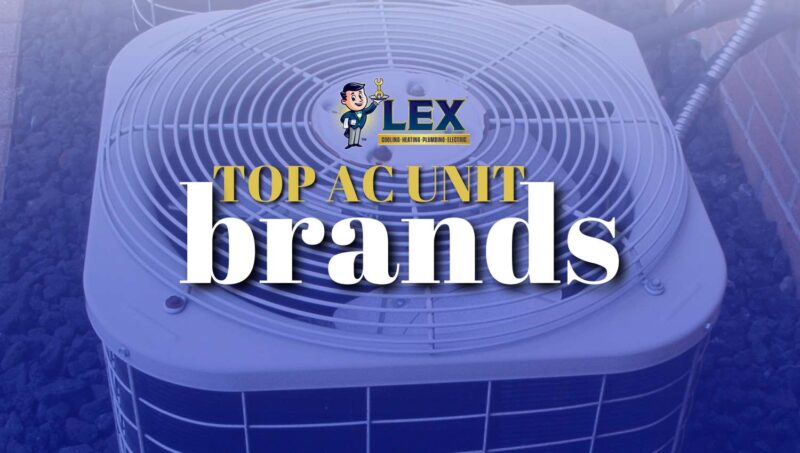Understanding the different types of electrical outlets is essential for ensuring your North Texas home or business operates safely and efficiently. The types of outlets vary based on design, voltage, and specific uses, catering to various appliances and power requirements.
Whether you’re dealing with standard 120-volt electrical outlets or specialized high-voltage ones, knowing the right type for your specific needs can ensure compatibility with modern devices and appliances as well as prevent potential electrical hazards. For professional guidance on installing or upgrading your electrical outlets, trust the experienced Carrollton electricians at Lex Electric.
Call (972) 217-8955 or contact us online today to ensure your electrical systems are up to code and functioning properly.
What is an Electrical Outlet?
An electrical outlet, also known as a power outlet, is a device typically installed in walls or floors that allows electrical equipment to connect to the primary electric power supply of a building. It serves as the access point for plugging in various appliances and devices to receive the necessary electrical current for operation.
There are several electrical outlet types and configurations available to accommodate all kinds of different voltages, plug shapes, and grounding requirements. Using the correct type of power outlet ensures safety and compatibility with the connected appliance.
Outlet vs. Receptacle
In everyday language, an outlet and a receptacle are often used interchangeably, but there is a subtle difference:
- Outlet: This term generally refers to the entire point where you can plug in an electrical device to get power. It can include the wiring, the electrical box, and the receptacle itself. A typical outlet contains a neutral wire, hot wire, and grounding wire.
- Receptacle: This specifically refers to the part of the outlet where you actually insert the plug. It’s the visible part with the slots or holes where you connect your devices.
So, while a receptacle is a part of an outlet, the term “outlet” includes the entire setup.
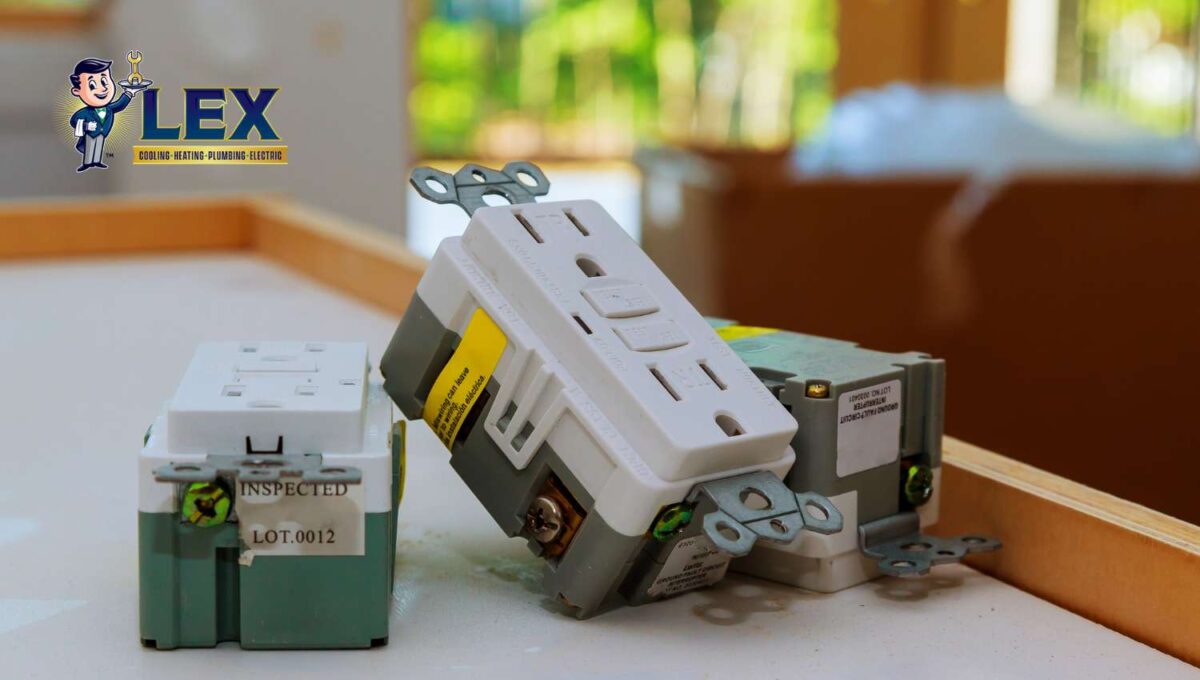
What are the Different Types of Outlets?
There are several different types of electrical outlets to meet various safety, convenience, and power requirements.
For instance, standard outlets can handle everyday electrical needs, while Ground Fault Circuit Interrupter (GFCI) outlets are designed for wet areas like kitchens and bathrooms, providing extra protection against electrical shocks. Arc Fault Circuit Interrupter (AFCI) outlets help prevent electrical fires by detecting dangerous arcs. Meanwhile, heavy-duty appliances, such as electric stoves and dryers, often require specialized 240-volt outlets to safely handle their greater power usage.
These variations ensure that electrical systems are both safe and efficient for different uses.
Standard Outlets (15A, 120V)
Standard outlets, rated at 15 amps (15A) and 120 volts (120V), are the most common types of outlets found in homes. They are used for everyday items like lamps, phone chargers, and small appliances.
The standard outlet used in the U.S. is called a “Type A” outlet. It has two vertical slots (one slightly wider than the other) and a semi circular hole. The two slots are for the prongs of your plug, and the semi-circular hole is for the ground pin. The ground pin is an extra safety feature that helps prevent electrical shocks. When you plug something in, all three prongs work together to make sure the electricity flows safely to your device.
These outlets provide enough power for most household devices, making them a go-to choice for living rooms, bedrooms, and other common areas. These outlets are also pretty reliable and handle the typical electrical needs of a modern home.
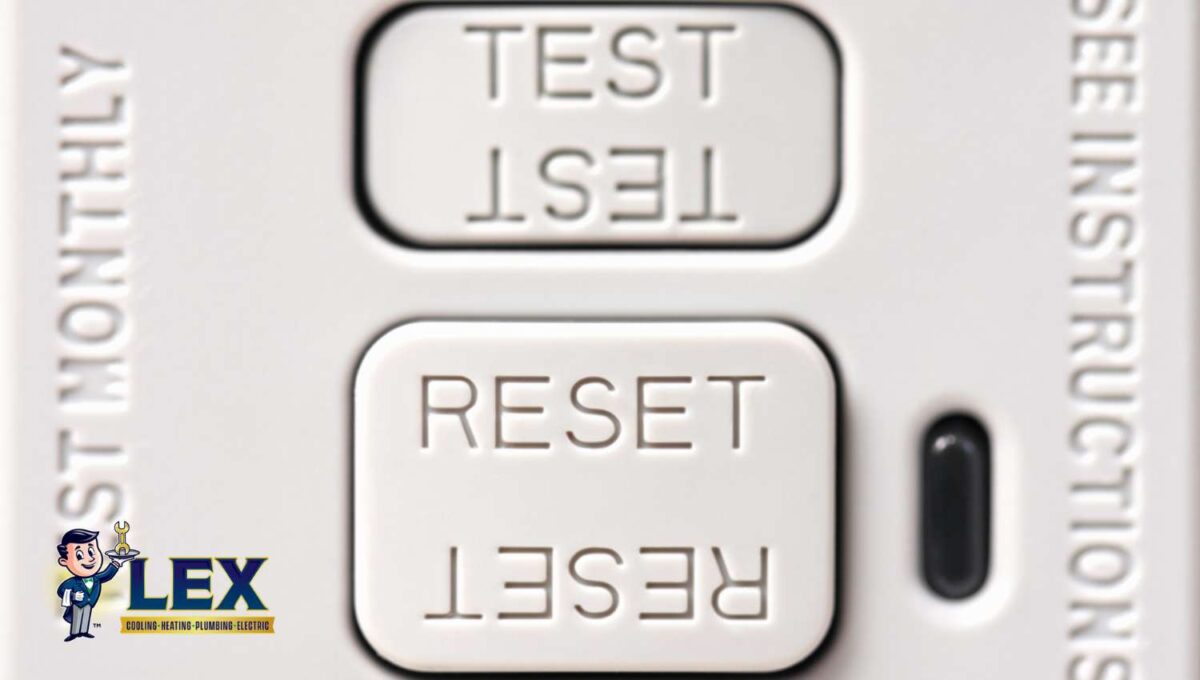
GFCI Outlets (Ground Fault Circuit Interrupter)
GFCI outlets, or Ground Fault Circuit Interrupters, are special electrical outlets designed to detect ground faults and protect you from electrical shocks. They are usually installed in places where water and electricity are in close proximity, like kitchens, bathrooms, and outdoor areas.
A GFCI outlet detects ground faults by constantly monitoring power usage, or the amount of electricity flowing through the hot and neutral wires. If the outlet detects any imbalance, which might happen if the current is flowing through water or a person, it quickly shuts off the power. This is an important safety feature that can prevent an electric shock from happening.
If your find your GFCI outlet is not working properly, they have a convenient test and reset button to test the functionality and reset the outlet if they trip.
The Dangers of Electric Shock
Electrical shock can be extremely dangerous, causing burns, nerve damage, or even death. It occurs when an electric current passes through the body, disrupting normal bodily functions.
An electrical shock can happen when you come into contact with an exposed or faulty wire. Loose connections in an outlet can create gaps where electricity can arc out, increasing the risk of shock. Without proper safety features like a GFCI, you are more vulnerable to shocks.
That’s why it’s important to have a professional handle your electrical needs, as they ensure all installations and repairs meet safety standards and reduce the risk of electrical hazards. Hiring a professional from Lex Electric for your installation or home rewiring needs will ensure your home is safe and compliant with regulations.
AFCI Outlets (Arc Fault Circuit Interrupter)
AFCI outlets, or Arc Fault Circuit Interrupters, are designed to prevent electrical fires by detecting dangerous arc faults. Arc faults can occur when there is damage to wiring, such as from a nail piercing a wire or a cord that has been pinched. These arcs generate high heat, which can ignite surrounding materials.
An AFCI outlet constantly monitors the electrical circuit for irregularities that indicate an arc. If detected, the electrical outlet quickly shuts off the power to prevent a potential fire.
According to The National Electrical Manufacturers Association (NEMA), over 40,000 fires in the U.S. each year are attributed to events associated with home electrical wiring and components. NEMA recommends the installation of AFCI outlets in both residential and commercial buildings, especially important in bedrooms and living areas where fires can start unnoticed.
20A, 125V Outlets
20A/125V outlets are electrical outlets designed to handle higher power demands than standard outlets. Rated at 20 amps (20A) and 125 volts (125V), these outlets are typically used for large appliances and devices requiring more electricity, such as refrigerators, microwaves, and power tools.
You can recognize these types of outlets by the unique horizontal slot next to the vertical slots, indicating they can accommodate heavier loads safely. Installing 20A/125V outlets ensures that high-power devices operate efficiently without overloading the electrical circuit, providing both safety and reliability in areas with greater electrical needs.
220-240V Outlets
220-240V electrical outlets are designed for high-powered appliances and equipment that require far more electricity than standard outlets. These types of outlets are commonly used for devices like air compressors, ovens, dryers, and air conditioners. They deliver a higher voltage, allowing these heavy-duty appliances to operate efficiently and effectively.
You can recognize such outlets by their larger size and different prong configurations compared to standard 120V electrical outlets.
Of course, professional installation is essential to ensure safety and compliance with building codes, as well as compatibility with your electrical system. These electrical outlets handle significantly more power and can pose greater risks if not correctly installed.
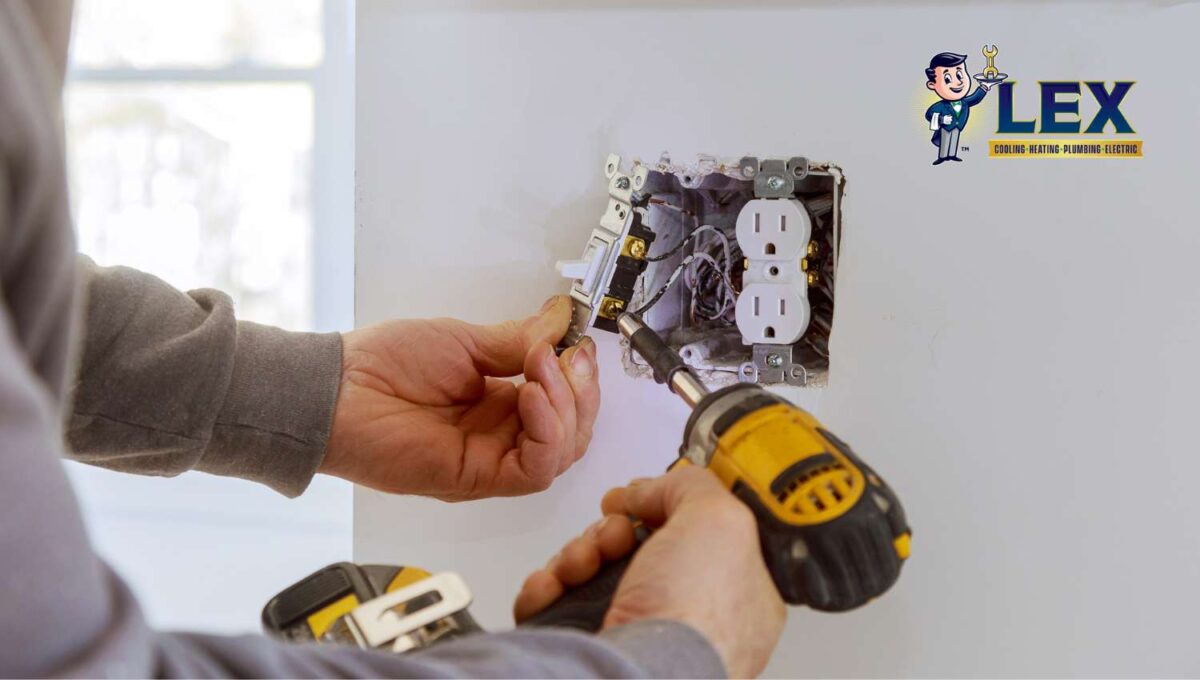
USB Outlets
USB outlets are modern electrical outlets that include built-in USB ports, allowing you to charge devices like smartphones, tablets, and other gadgets directly without needing an adapter.
These electrical outlet types are convenient and help reduce clutter by eliminating the need for multiple charging bricks. They typically provide a standard 120V power for regular plugs alongside the USB ports, making them versatile and efficient.
Installing USB outlets in your home or office can enhance convenience and streamline your charging setup, ensuring all your devices are powered up and ready to go.
Smart Outlets
Smart outlets are an advanced type of electrical outlet that can be controlled remotely via a smartphone app or a smart home system like Amazon Alexa or Google Home. Smart outlets allow you to turn devices on or off, set schedules, and monitor energy usage from anywhere, enhancing convenience and energy efficiency.
These types of outlets use WiFi or Bluetooth to connect to your home network. Smart outlets can also integrate with other smart home devices, such as robotic vacuum cleaners, creating automated routines for improved home management.
By upgrading to smart outlets, you can gain better control over your electrical devices, improve energy savings, and increase the overall functionality of your home.
The Benefits Home Automation Systems
Home automation systems offer benefits by integrating various types of smart devices into a cohesive, easily managed network. These systems allow you to control lighting, climate, security, and appliances remotely through a smartphone or voice commands, enhancing convenience and efficiency.
One significant advantage is monitoring power usage, which helps optimize energy consumption and reduce utility bills. Home automation also boosts security by integrating surveillance cameras, smart locks, and alarm systems, providing real-time alerts and remote monitoring.
Overall, these systems simplify daily tasks, improve energy management, and increase the comfort and security of your home.
Tamper-Resistant Outlets
Tamper-resistant outlets are intended to prevent electrical hazards and protect you from electrical shocks. These types of outlets are particularly great for homes with small children, as their curiosity can lead to fingers or foreign objects being inserted into the electrical outlet.
A tamper-resistant receptacle has built-in shutters that close off the contact points. The shutters only open when equal pressure is applied to both vertical slots, like when a standard plug is inserted. This safety feature ensures that only a properly grounded plug can be plugged into the outlet.
By installing tamper-resistant receptacles, you can avoid electrical safety issues and significantly reduce the risk of electric shock, providing a safer environment for you and your children.
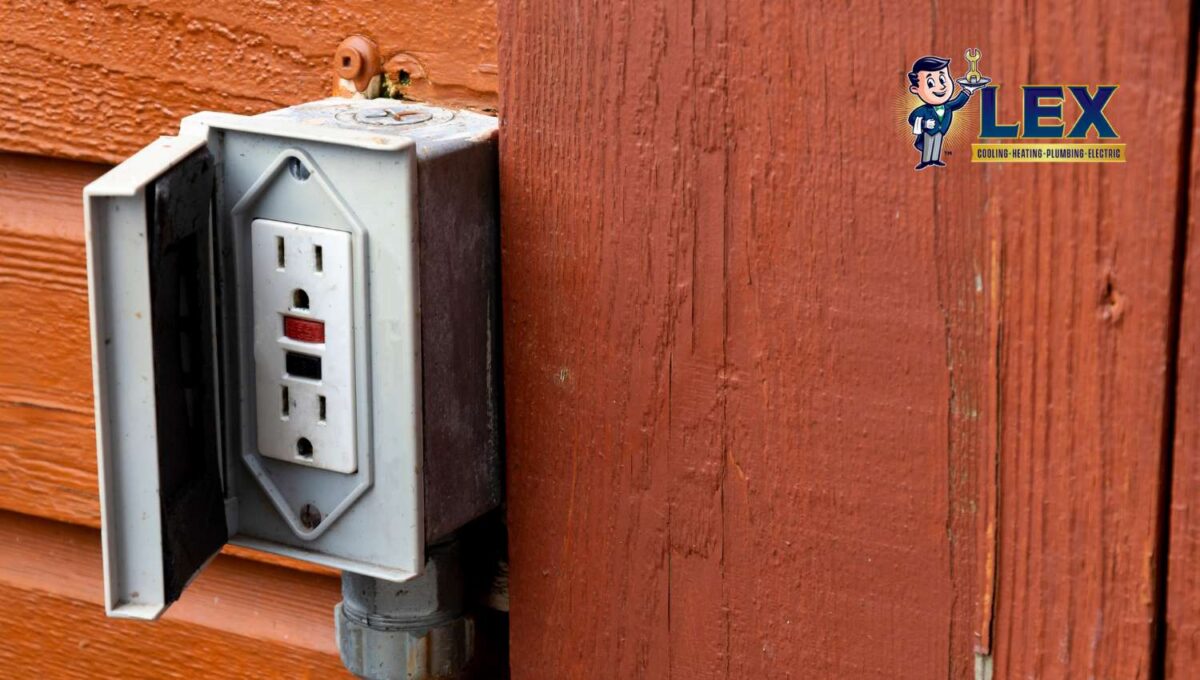
Weather-Resistant Outlets
Weather-resistant outlets are designed to handle outdoor conditions like rain, snow, and extreme heat. They come with special covers that protect them from getting wet or dirty, which keeps them safe to use outside.
You’ll often find this type of electrical outlet on patios, decks, or near pools where they can be exposed to the elements. They’re also great for garages and the outside of your house. Using these outlets helps prevent damage and keeps everything running safely when you need something plugged in outdoors.
Hospital-Grade Outlets
Hospital-grade outlets are special types of electrical outlets you’d find in medical settings. They are tougher and more reliable than the usual outlets in homes. These outlets are designed with extra secure connections to the ground pin and grounding wire, which help prevent any electrical mishaps that could be dangerous in a hospital environment. You can typically recognize these types of electrical outlets by a green dot.
A commercial electrician who specializes in electrical systems for businesses and facilities should always install these outlets, as they need to meet strict safety standards. Hospital-grade outlets ensure that medical machines and equipment run safely and smoothly without interruptions.
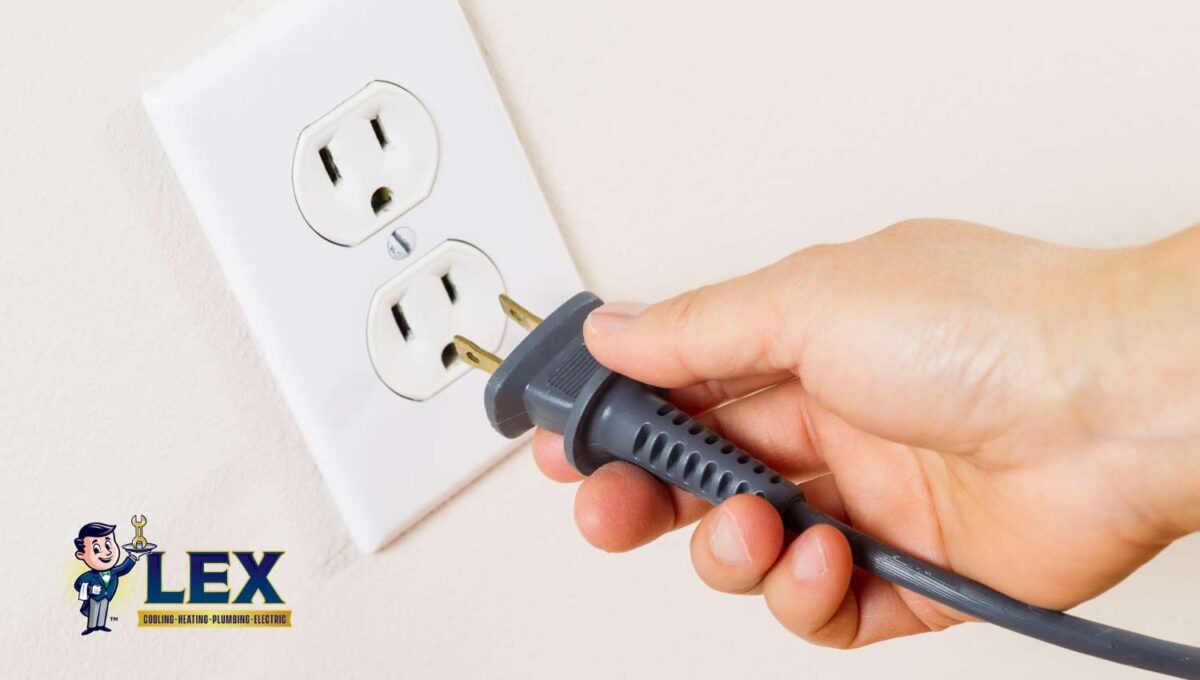
Choosing Between Electrical Outlets
When deciding on electrical outlet types, it’s important to match the outlet to both the electrical needs of your devices and the conditions of the environment.
Standard 15A, 120V outlets are suitable for most household electronics, but for appliances requiring more power, such as dryers or stoves, a 20A, 240V outlet might be necessary. In wet areas like bathrooms and kitchens, a GFCI outlet will provide essential safety features to prevent electric shock. For global travel or appliances purchased abroad, you might need Type C or Type D outlets, which accommodate different plug shapes and voltage requirements.
Always consider consulting with a professional electrician to ensure that your choice of outlet is appropriate for your needs and complies with local electrical codes.
How To Add an Outlet
Adding an outlet might seem simple, but it involves a few careful steps. First, you’ll need to turn off the power to the area where you want to install the new outlet. Then, you’ll choose the spot for the outlet, cut a hole in the wall, and run the appropriate wiring from a nearby existing outlet or your electrical panel. Attach the wires to the new outlet and secure it into the wall. Finally, turn the power back on and test the outlet to make sure it works properly.
While these steps might sound straightforward, working with electricity can be tricky and dangerous if you’re not experienced. For more complex installations or if you’re not completely comfortable doing it yourself, it’s better to contact a professional electrician like those at Lex Electric. We offer exceptional service to ensure the job is done safely and everything is up to code.
North Texas Commercial and Residential Outlet Wiring Services
Lex Electric is your go-to expert for all types of outlet wiring needs in Carrollton and the surrounding North Texas region. We handle everything from setting up new outlets and fixing old ones to adding modern features like USB ports.
Our team is known for being reliable and thorough, making sure each job is done right and safely the first time around. If you’re upgrading your home or need professional wiring services for a large commercial space, Lex Electric has the skills, tools, and experience to get the job done.
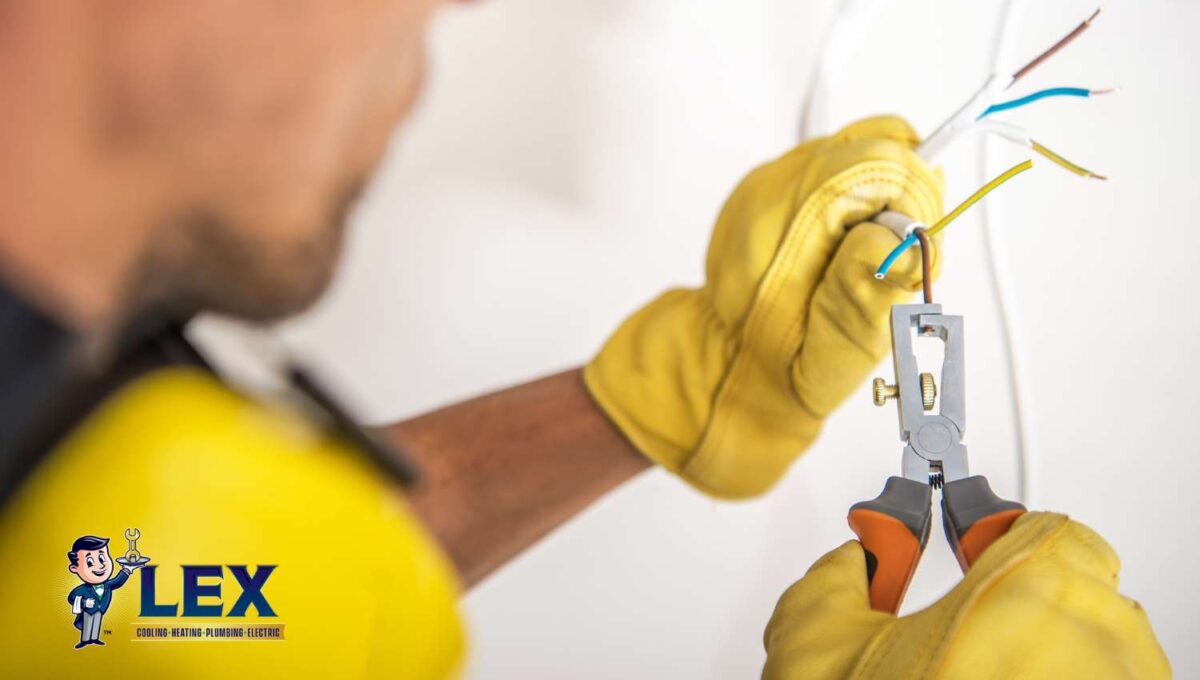
Call Lex Electric for Electrical Outlet Upgrades in Carrollton, TX
If you’re in Carrollton, TX or the nearby Dallas-Fort Worth area and need expert help repairing or upgrading electrical outlets, don’t hesitate to reach out to Lex Electric. Whether your home needs an electrical inspection or you want to ensure your business’s wiring is up to the latest standards, we can handle it all.
Call (972) 217-8955 or contact us online to schedule a consultation and let our professional team take care of all your electrical needs with precision and care.
